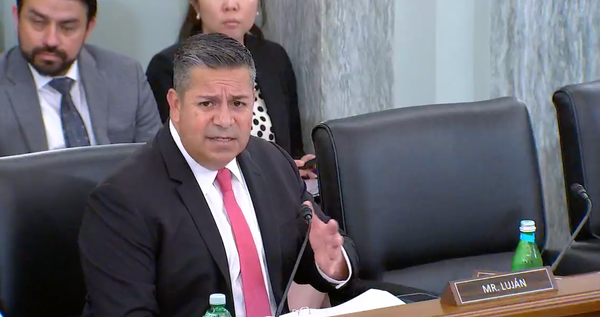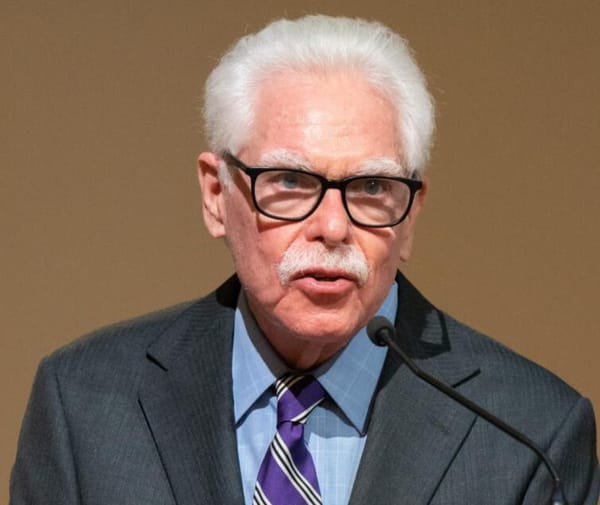Addressing Anti-Competitive Behavior on the Internet
NEW YORK, June 23 – In an effort to address the anti-competitive behavior that impacts various aspects of the Internet and technologies markets, as well as their vital markets for ideas, the Personal Democracy Forum brought together panelists representing the “little-guy” innovators of the technolog
Blog Entries
NEW YORK, June 23, Late-Afternoon – In an effort to address the anti-competitive behavior that impacts various aspects Internet and technologies markets, as well as their vital markets for ideas, the Personal Democracy Forum brought together panelists representing the “little-guy” innovators of the technology industry. Moderator Adam Green explains that open access is one policy issue that impacts how much access Internet and technology start-ups can have to the marketplace and, consequently, how much access citizens can have to the tools for innovation and democracy. Adam has assembled today’s panel to represent case studies in anti-competition issues in the ICT space: Amol Sarva, founder of Peek wireless applications and veteran of Virgin Mobile; Mary Hodder of Dabble video search technology, Christopher Libertelli of Skype and formerly of the FCC; and Marvin Ammori, General Counsel for Free Press.
Amol gets things started with his profile in anti-competition: wireless spectrum in the US. A space with only a few competitors could have gotten a lot bigger last year with the 700 MHZ auction, but the incumbents AT&T and Verizon managed to buy-up the bulk of the valuable property. However, a large portion of that spectrum will be available under “open access” rules that will force Verizon to allow a range of devices to access the network. Amol recommends diligence on the part of citizens concerned with assuring that the open access rules are enforced.
Chris Libertelli’s profile in anti-competition features the FCC and the Commission’s recent ruling that prevents Carter Phone allowances in the wireless space. The decision effectively prevents the wireless realm from achieving the innovative capabilities of the wireline space where Skype and other VOIP companies havecontributed massively to citizens’ ability to communicate and choose a path for their communications.
Mary presents her profile in anti-competition as Google’s “market chilling” move into video search, which has effectively frozen institutional funding for start-ups despite the fact that Google doesn’t have any better chance than the “little guys” in this space due to proprietary issues in video. Finally, Marvin offers up some “policy wonk context” and attempts to explain the regulatory issues at the heart of anti-competition in the Internet technologies space. He then presents Comcast as his profile in anti-competition and advocates for an FCC initiated and enforced network neutrality provision to enhance competition, innovation, and free speech on the Web.
The question and answer session with the panel seeks deeper explanations for the technical issues at hand when it comes to concepts like “Carter Phone” and “Net Neutrality” and for a look to the future in terms of solving these problems. Amol and Marvin submit that open access in the 700 space was a good start and that those who care about competition will have to be vigilant in making sure the terms of openness are complete. Amol believes that “the process of attaching innovations to wireless phones under any of the incumbent’s terms will pollute the innovation.”
BroadbandCensus managed a question for the panel: “if the lack of competition among providers is a problem and the FTC won’t solve it, then what can be done?” Amol thinks a change in administration may expand the opportunities for inducing competition. David Isenberg quickly follows-up and submits that competition among providers is the elephant in the room and net neutrality and carter phone provisions won’t fix it. Chris (Skype) disagrees and replies that “it’s not the number of competitors, it’s the business model of those competitors.”
Additional audience questions and comments are concerned with the politics around the issues and how the incumbents are able to dominate. Amol’s answer is that there are two big problems: 1) policy makers don’t understand the issues well-enough and aren’t inviting the right people to the table and 2) even when Silicon Valley is invited to the table, they aren’t stepping up and making bold moves. In reference to the latter, he cites Google’s play in the 700 MHZ auction and charges that the search giant “didn’t step-up” enough in their meager bid for and retreat from the auction.
Chris and Marvin disagree with this perspective and state that the telcos and others are well-practiced nation-wide lobbying machines – “Skype is a European company!” – and Mary adds that Silicon Valley isn’t keen to get into policy battles yet and when they do, their free market tendencies may prevent them from supporting regulatory intervention. Chris does admit that there are vast opportunities for Silicon Valley to lobby Washington, particularly by utilizing the very technologies that are at issue and providing the tools for grass roots supporters.
So the panel ends with a great example of the connection between democratizing technologies and policy. Something to keep in mind throughout the rest of the conference: policy has consequences for democratizing technologies and democratizing technologies may be the only hope for good policy.









